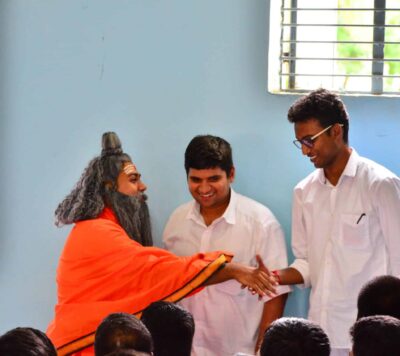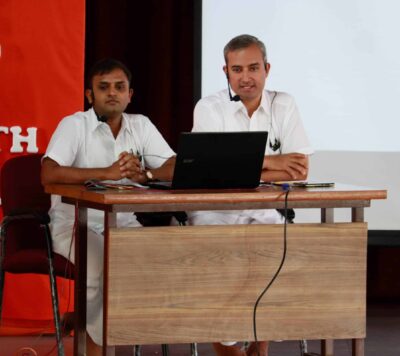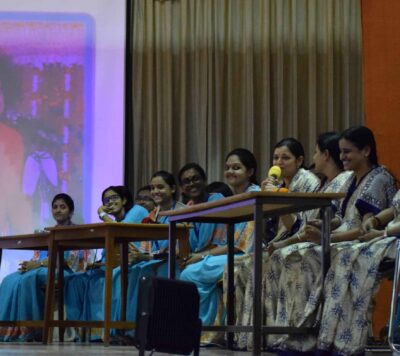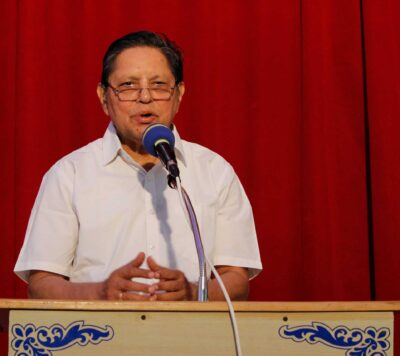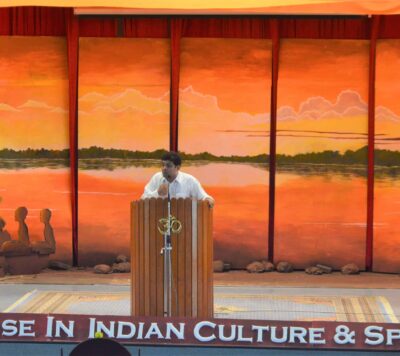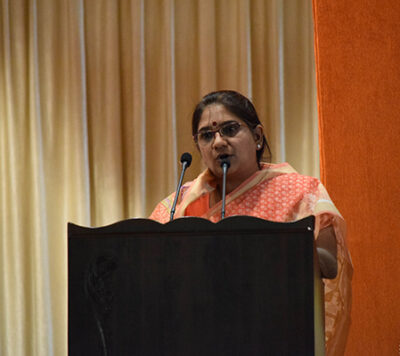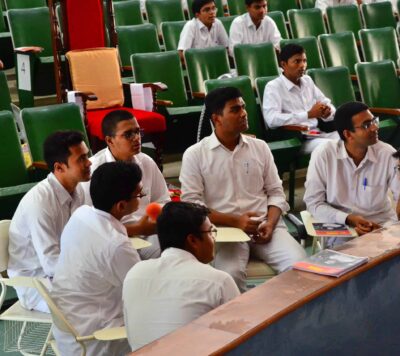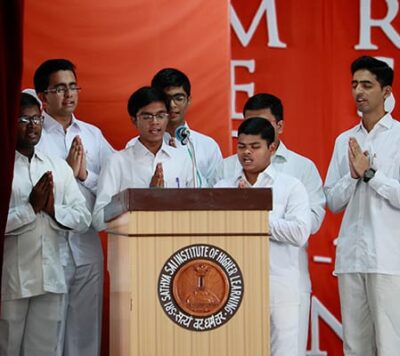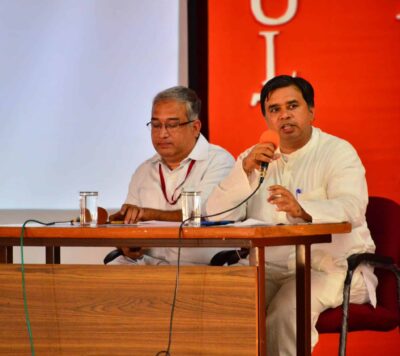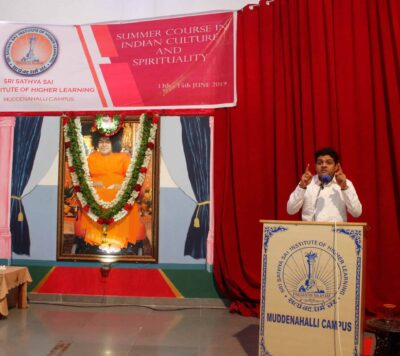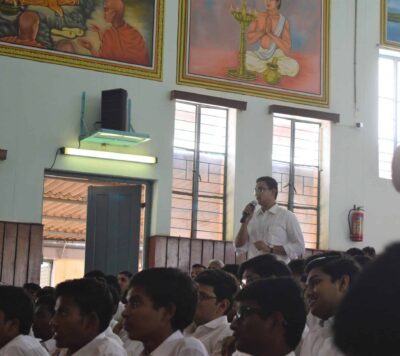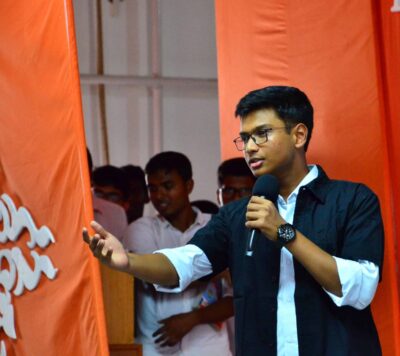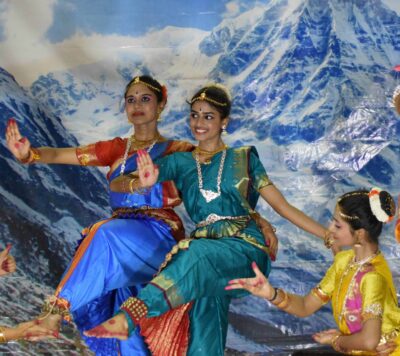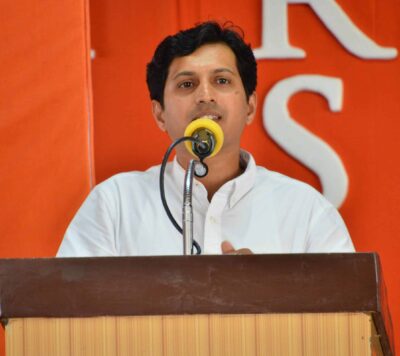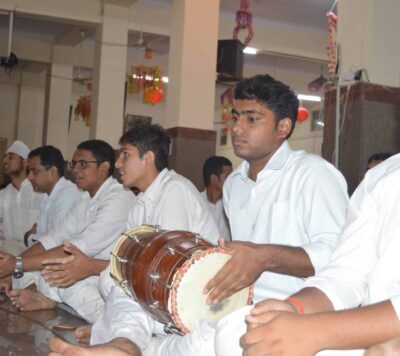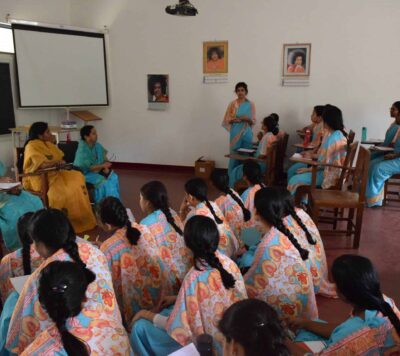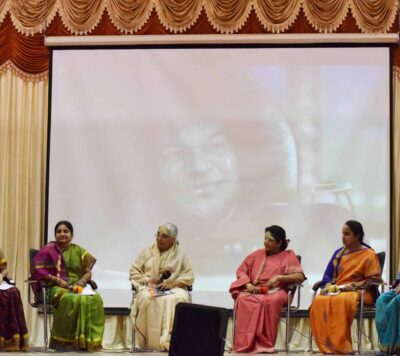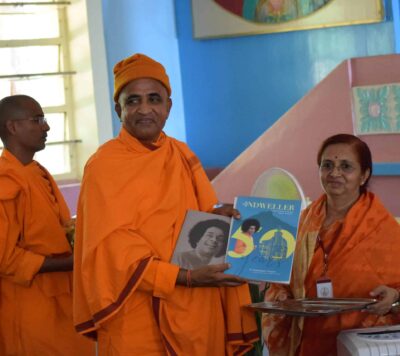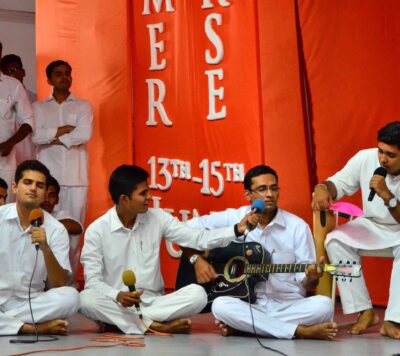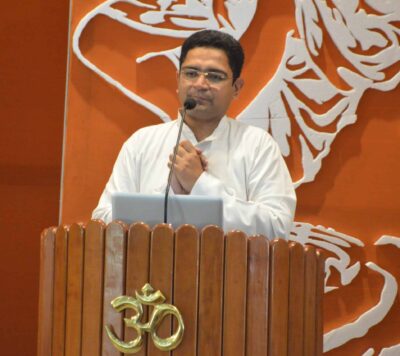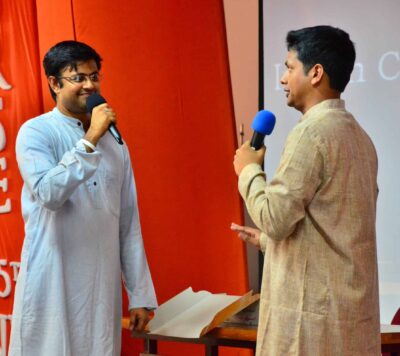Students and Teachers across all SSSIHL campuses celebrate India’s 73rd #independenceday
#SSSIHL
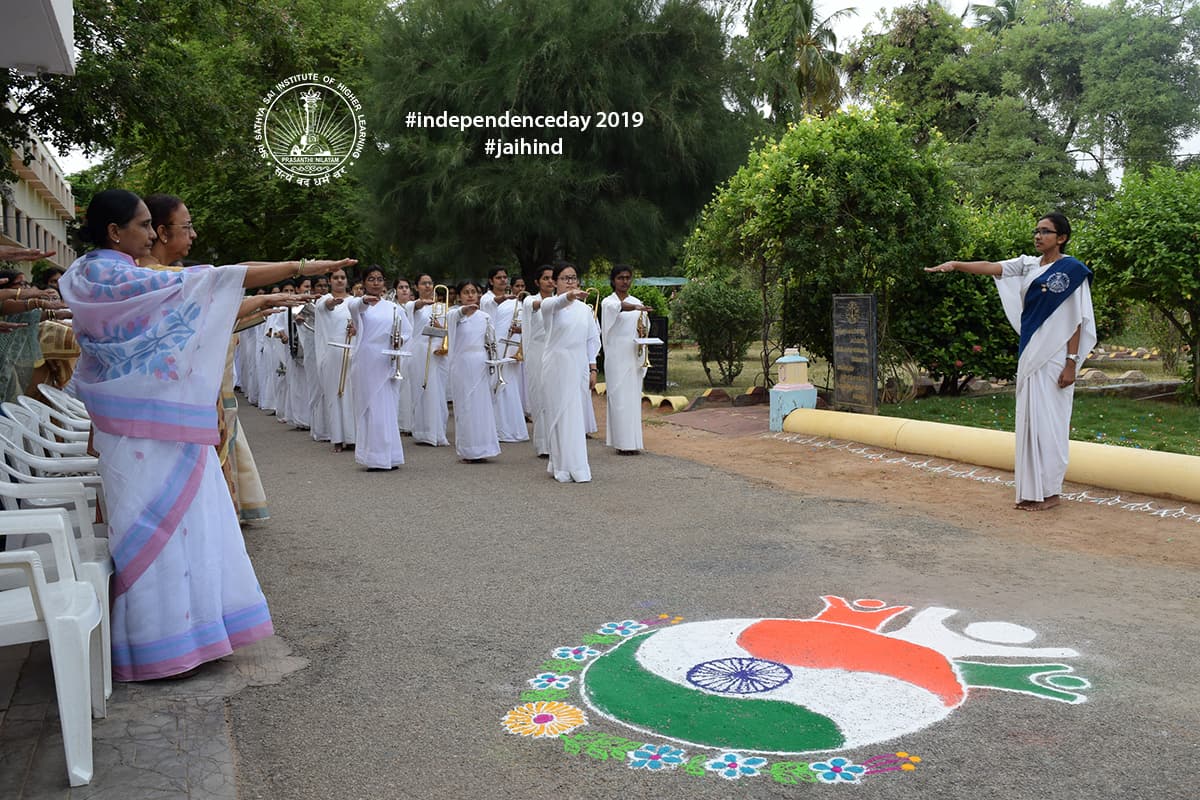
Students and Teachers across all SSSIHL campuses celebrate India’s 73rd #independenceday
#SSSIHL
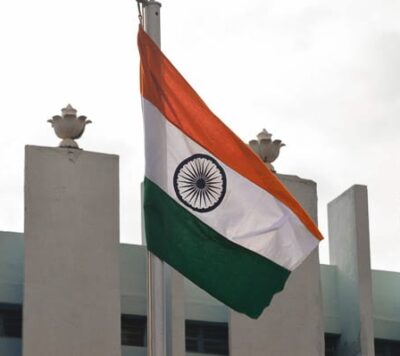
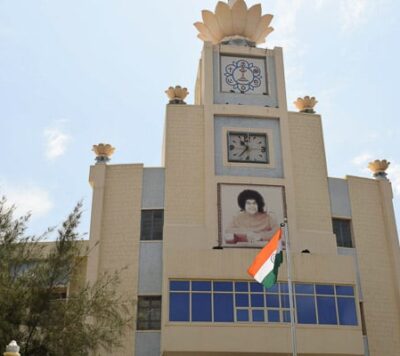
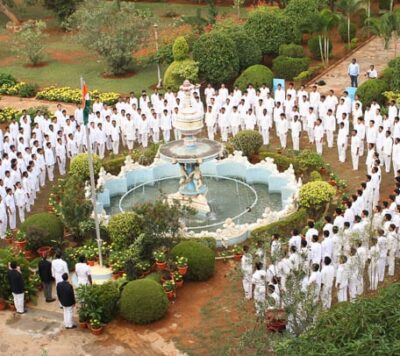
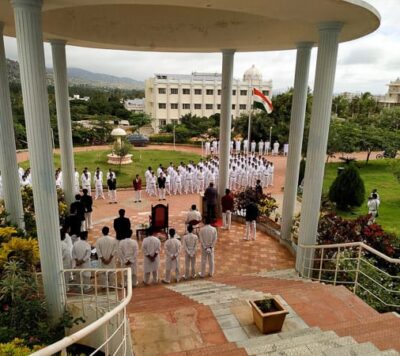
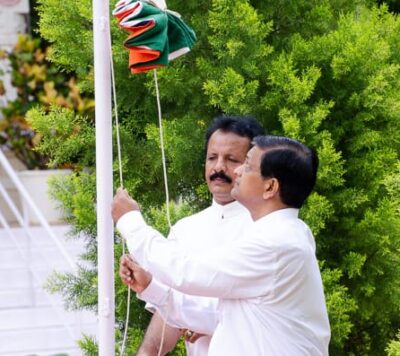
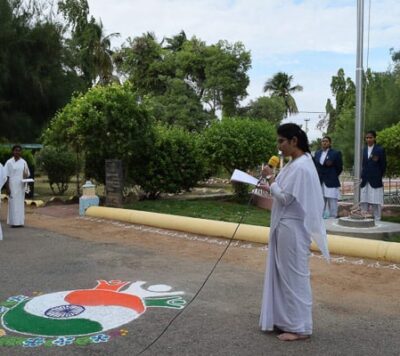
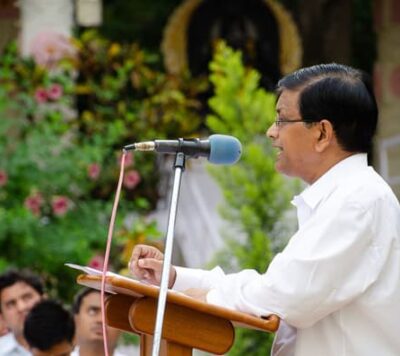
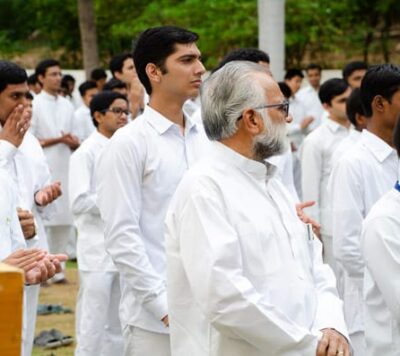
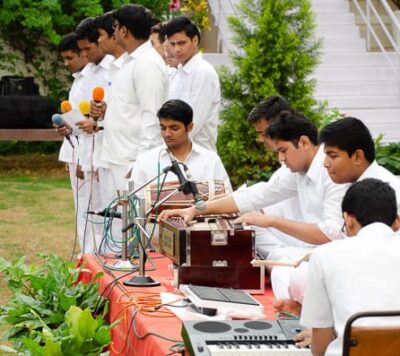
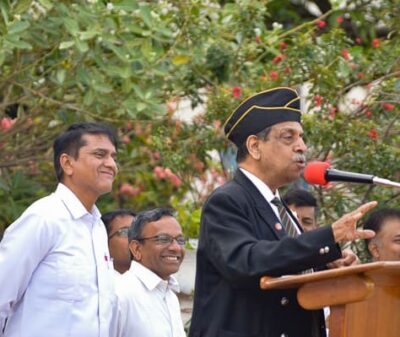
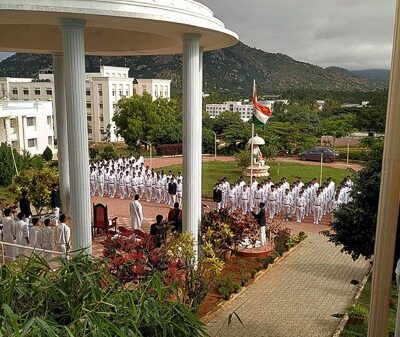
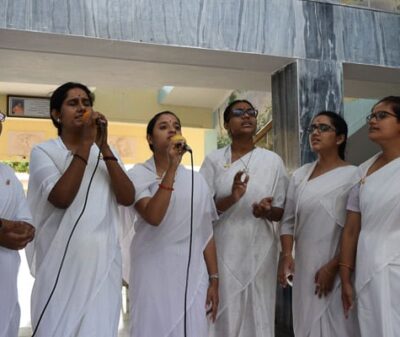
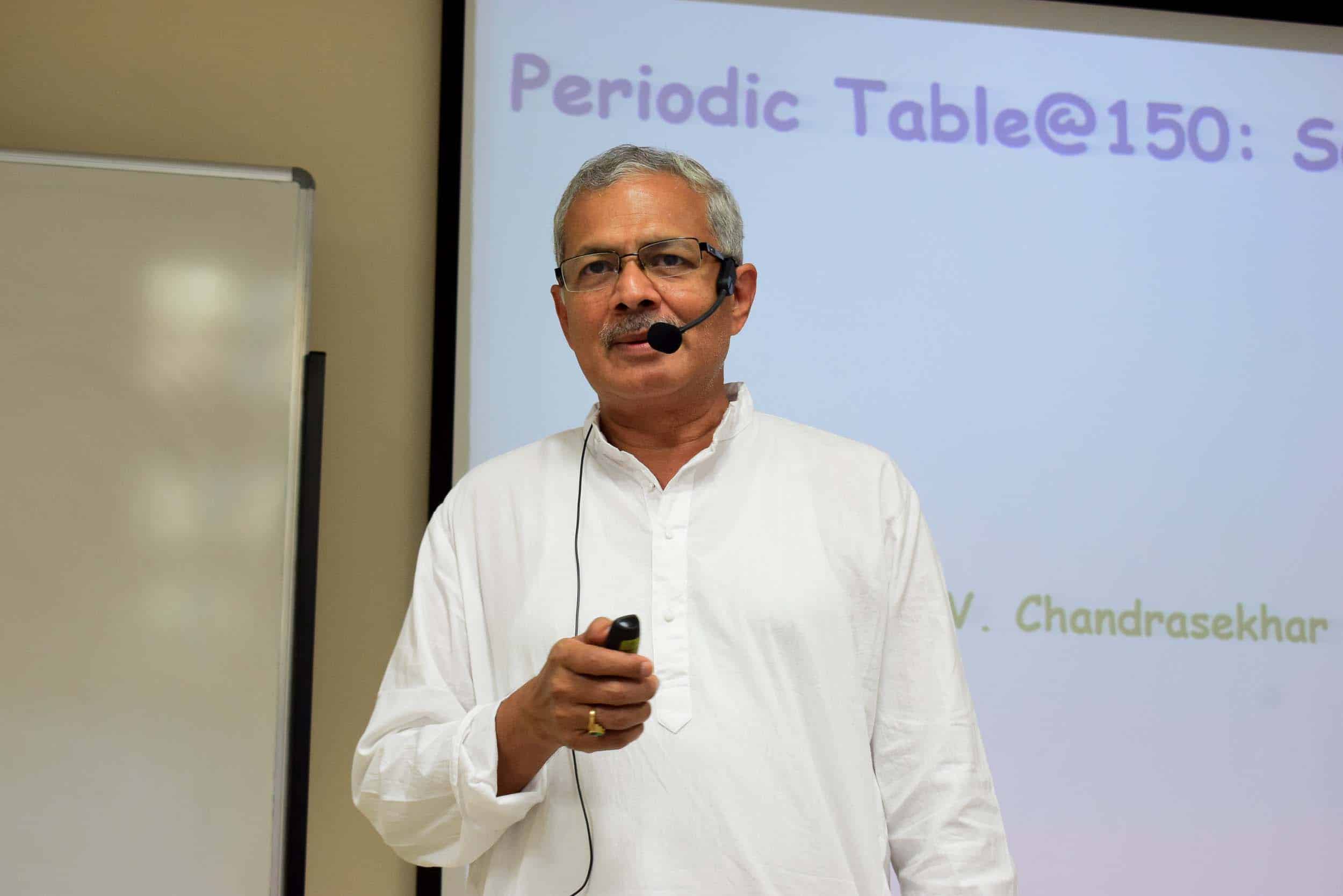
The #periodictable of elements – the backbone of Chemistry – turns 150! Back then, a Russian Chemist and inventor, Dmitri Mendeleev, formulated the Periodic Law, and his farsighted version brought us the Periodic Table. Most of us have fond (or in many cases, not so fond) memories of trying to memorize this table when we were in school.
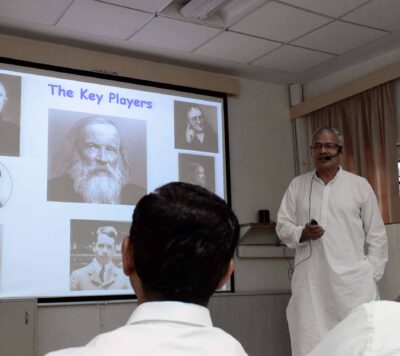
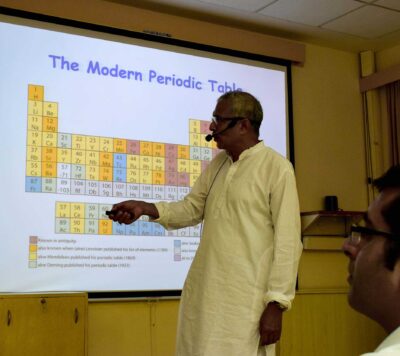
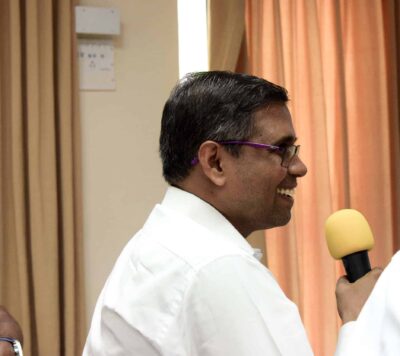
As part of this celebration, the Department of Chemistry, SSSIHL arranged a talk by Prof. V Chandrasekhar, Centre Director, Tata Institute of Fundamental Research, Hyderabad, on 8 August 2019. He spoke on the topic, Periodic Table @150: Some Stories.
He started with historical anecdotes of Mendeleev and his contributions to the development of the periodic table. He elaborated on why we need a periodic table and why (at all) do we need to establish a relationship between the elements? The answer lies in the fact that we use many — if not all the elements — as part of our daily lives.
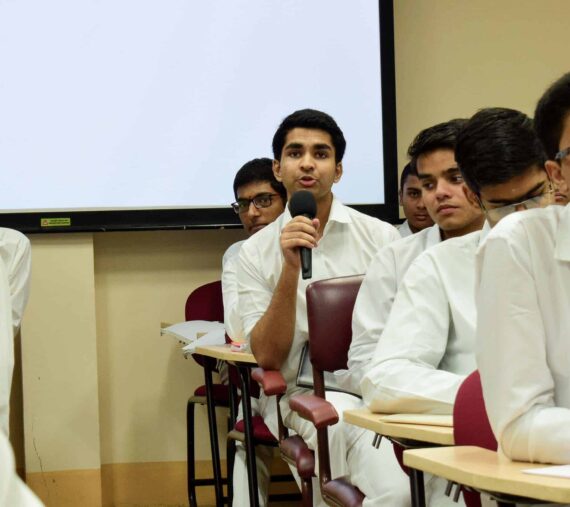
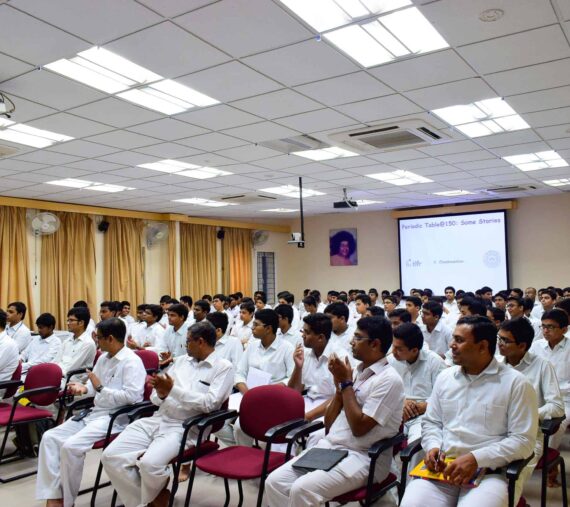
Pluto stated that all matter is made of elements (earth, fire, air, water and space), and thus began the journey of science. Chemistry, on the other hand, began with the alchemist’s search for the philosopher’s stone to convert base metals into gold. In this regard, there were many alchemists, such as Henning Brand (who discovered Phosphorus – flask glowing in the dark), Robert Boyle (who gave the gas laws) and Lavoisier (who quantified science by coming up with the law of mass conservation).
In time, there were many elements and a growing number of attempts on finding a relationship between the elements, starting with Dobereiner triads, Newland’s octave and finally Mendeleev. Against all the odds, he completed his education and went on to develop a periodic table that was first arranged, based on the atomic mass of elements. He not only arranged the elements into a table but also predicted the possibility of the discovery of new elements by proposing gaps between the existing elements. Then, Lord Rayleigh and Sir William Ramsay discovered the noble gases and Chadwick discovered the isotopes.
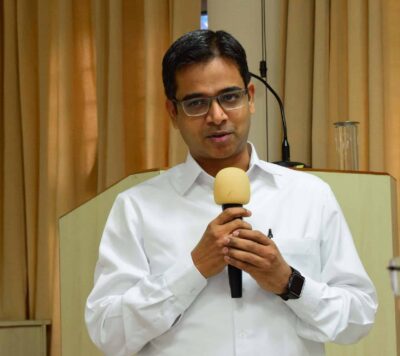
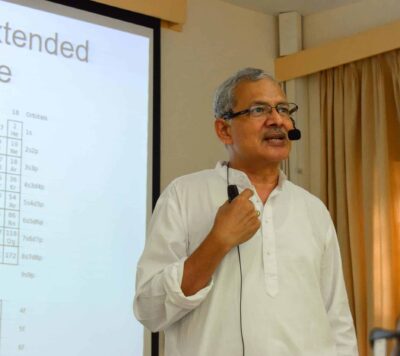
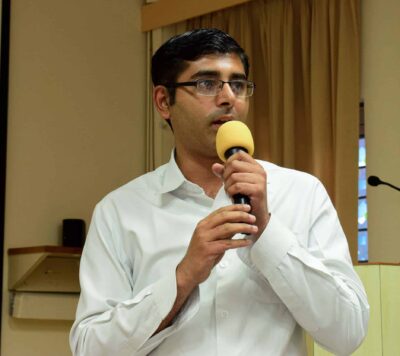
The final piece of the puzzle in the periodic table, as we know of today, was solved by Henry Moseley, who arranged the periodic table by atomic number and then several gaps were filled later by the discovery of more elements of the periodic table by scientists such as Seaborg. The talk looked at the development of the periodic table from the layman’s perspective, offering a fusion of science and history. It was delightful, insightful and invigorating.
#SSSIHLChemistry #SSSIHL
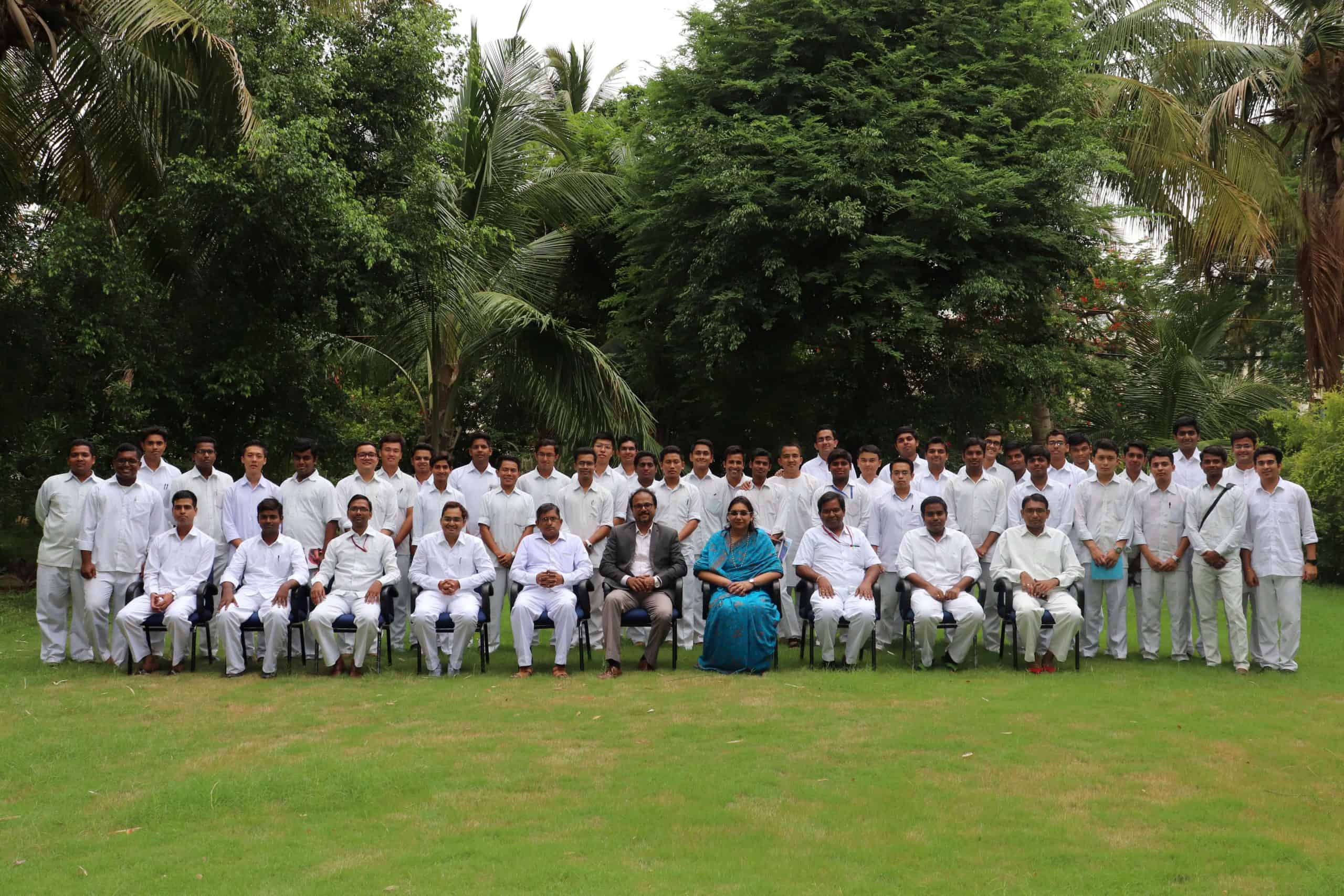
Monetary Policy.
The most complex of all macroeconomic processes becomes even more complicated when you apply it to a developing country like India. Supply constraints, underdeveloped financial markets and resource gaps are just some of the challenges involved.
To deliberate on this, the Dept. of Economics held a one-day lecture series, Recent Developments in India’s Monetary Policy on 27 July 2019. The four lectures included:
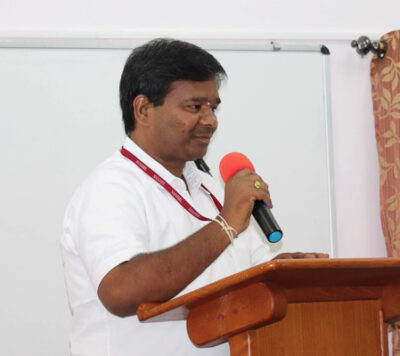
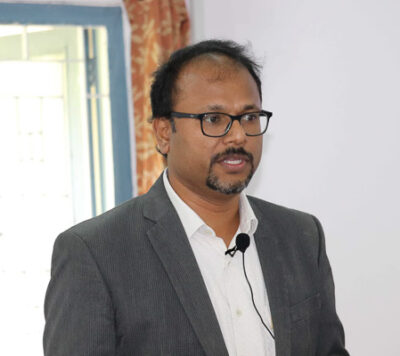
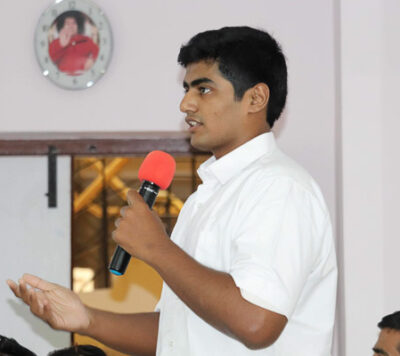
Dr. G Raghavender Raju, Head, Dept. of Economics, SSSIHL, spoke about the objectives of monetary policy and gave an overview of the evolution of India’s monetary policy.
Mr. Jinu Jose, Senior Vice President and National Account Manager, UTI Mutual Fund, Bangalore, gave a lecture on Understanding Liquidity, Inflation and the Interest rates. He spoke on the theoretical relationships between them and correlated this relationship with current data of the Indian Economy.
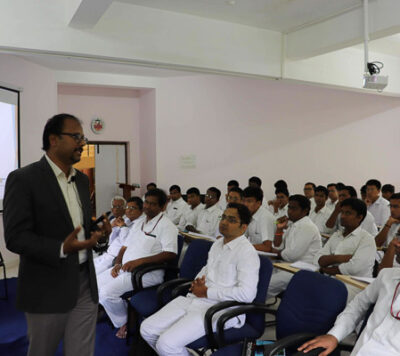
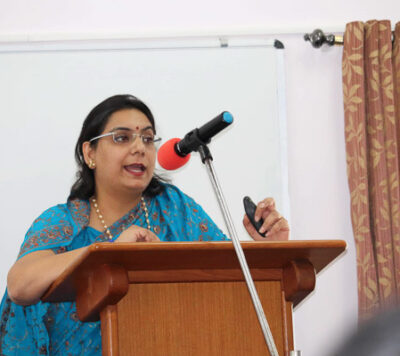
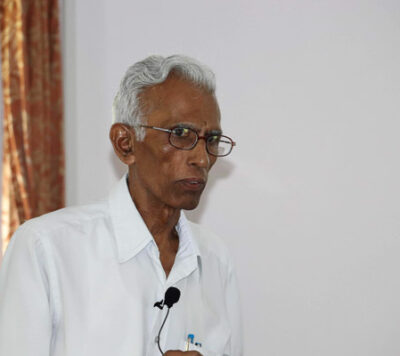
Prof. V L Rao, Former Professor in Gitam University, Visakhapatnam, talked about the Emerging Trends in India’s Monetary Policy. He expanded on the monetary policy of India during and after the global financial crisis of 2008.
Ms. Vibhuti Koul, Senior Vice President and National Account Manager, UTI Mutual Fund, Mumbai, spoke on the Non Banking Financial Companies (NBFC) crisis and discussed the causes, implications and lessons to be learnt from it.
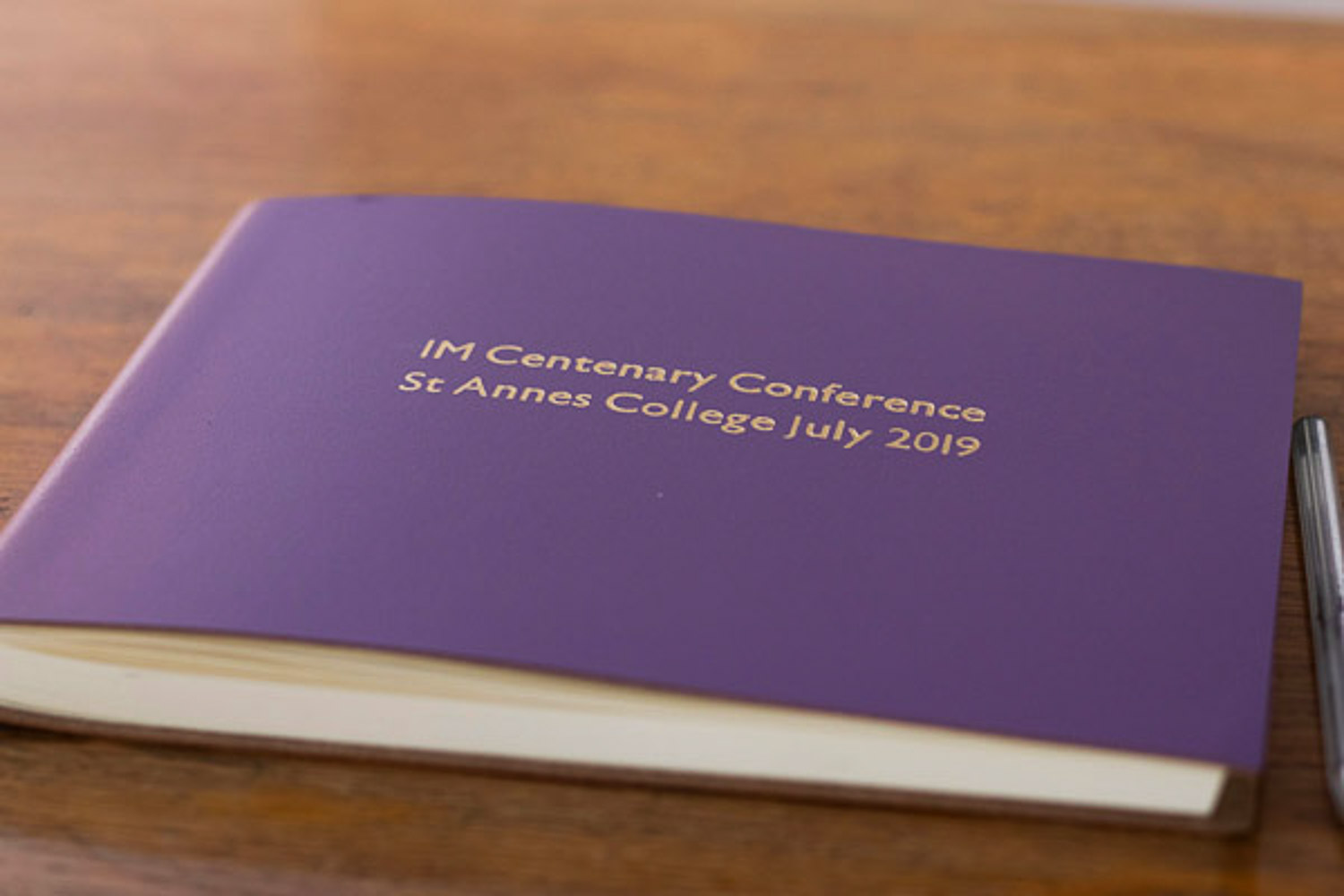
Dr. (Miss) Dibba Bhargavi, Asst. Professor and Ms. Prasanti Prabha, Doctoral Research Scholar from the Department of English Language and Literature, SSSIHL, presented a paper each at the niche and prestigious Iris Murdoch Centenary Conference at St Anne’s College, University of Oxford, UK, 13-15 July 2019.
The conference was organised by The Iris Murdoch Research Centre in association with the University of Oxford.
The Iris Murdoch Society, based at the University of Chichester, is run by the Research Centre of the University to promote the philosophical and artistic vision of Iris Murdoch, a post-modern British novelist and philosopher. Professors, researchers, critics and general readers of Murdoch attend the conferences that the Society conducts (once every two years) in order to enhance, promote and archive the research on Murdoch.
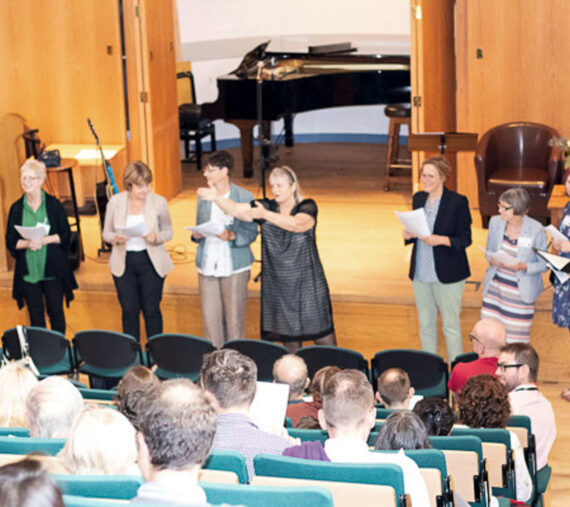
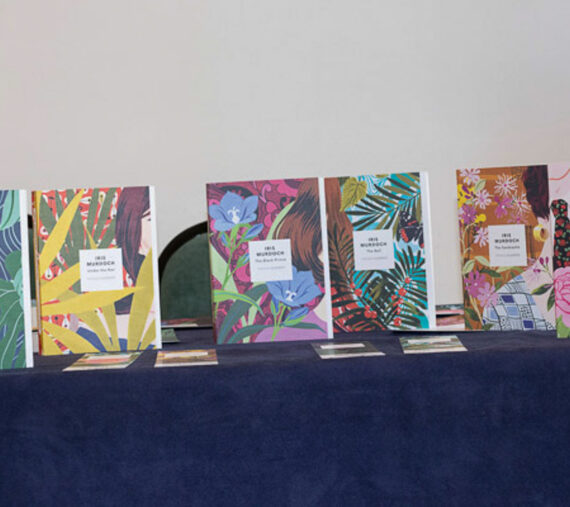
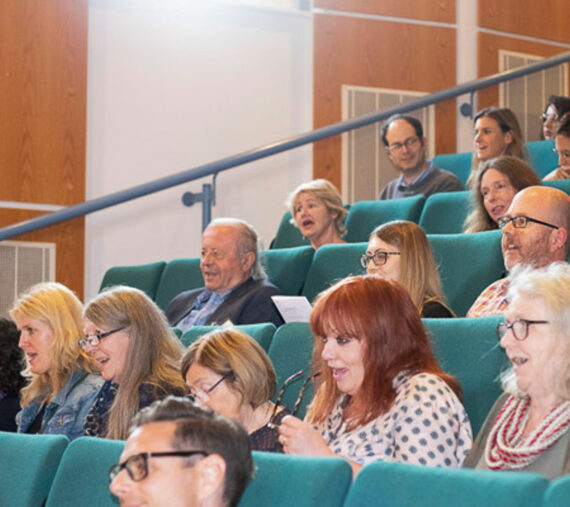
Scholars from across 19 countries enthusiastically participated in the panel discussions, round-table conferences and symposiums dealing with a wide range of topics like ethics, intertextuality, politics, mind, perception, sociability, poetics, philosophy, aesthetics, realism, løgstrup, film, music, art, form, and moral life reflected in Murdoch’s writing.
Since Murdoch was influenced by Indian philosophy, the papers presented focussed on tracing the subtle references to Indian philosophical concepts in her novels. Titled, “Who is the Master?: An Understanding of The Message to the Planet in the Indian Context” and “Meandering Through the Web of Illusion: Bruno’s Dream from an Indian Perspective”, both papers analysed Iris Murdoch’s work using narratology. They also highlighted the latent Vedantic undertones in some of her novels.
The presentations were appreciated for the novelty of the idea and interpretation.
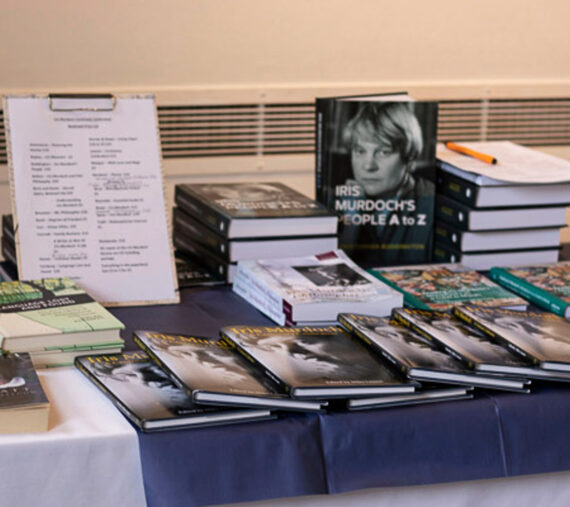
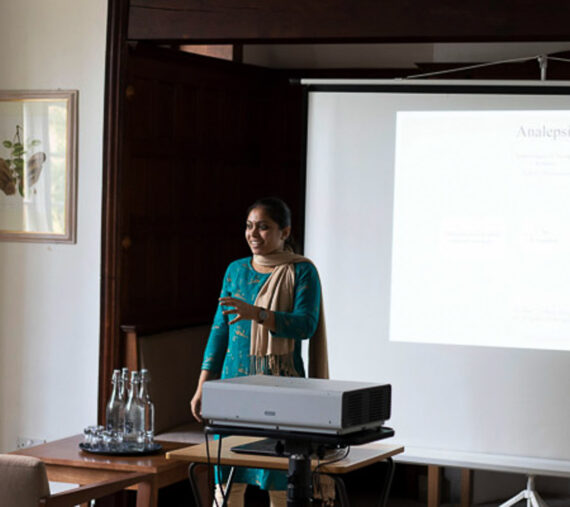
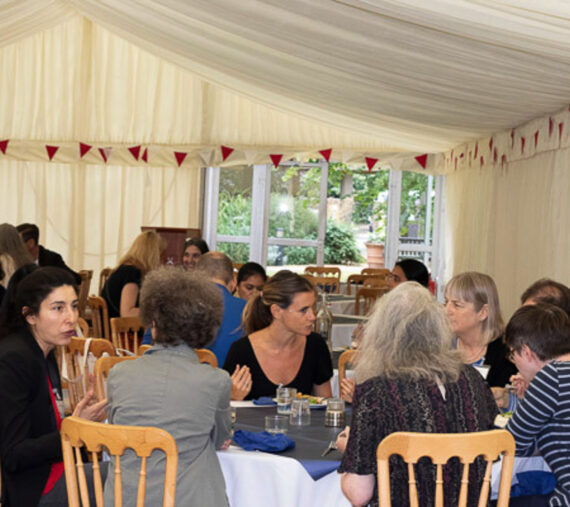
As participants, the team visited and explored the exhibition (on Murdoch’s Oxford life) at Somerville College & Kingston Museum. Other interesting and educating activities that were a part of the Centenary Conference included:
#SSSIHL #SSSIHLEnglishLanguageLiterature
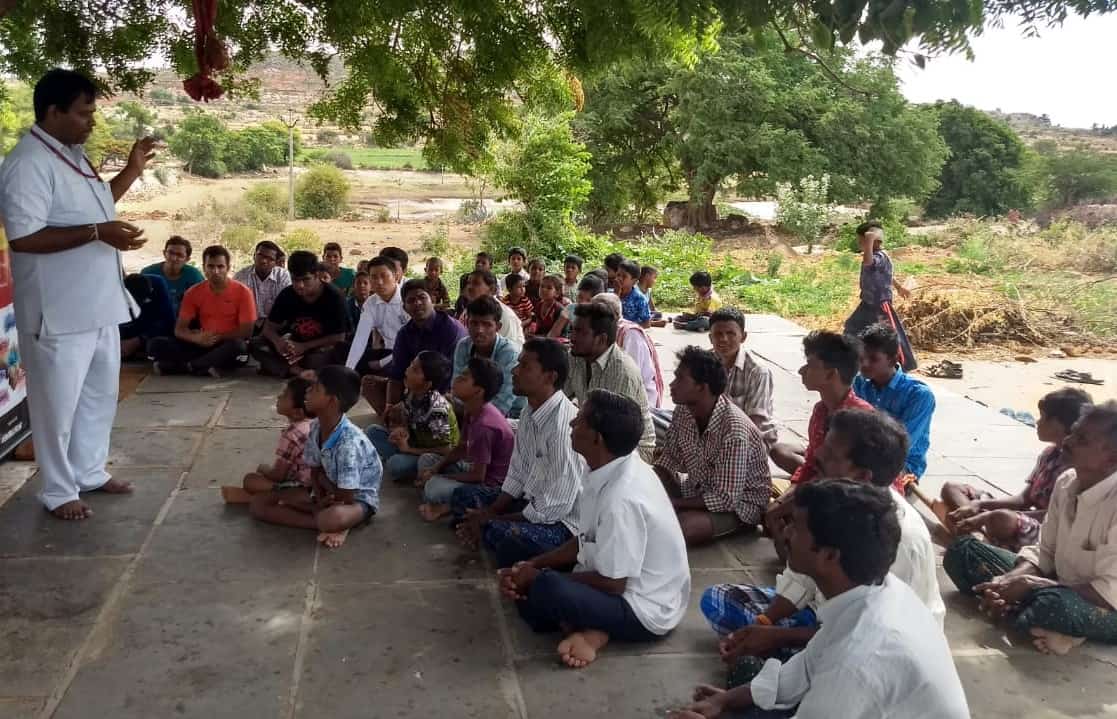
#GramaSeva
Initiate. Serve. Love. Repeat.
Almost ten months ago, in the early hours of 16 October 2018, teams of students and teachers of the Prasanthi Nilayam Campus, SSSIHL, packed with enthusiasm, love and supplies, left for their first visit to three villages – Narsimpalli, Bukkapatnam Mandal (Population: 2500), Bonthalapalli, Puttaparthi Mandal (Population: 2500) and Marlapalli, Puttaparthi Mandal (Population: 1000).
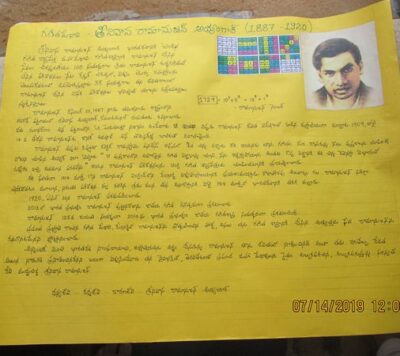
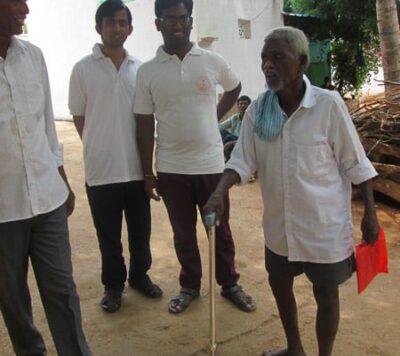
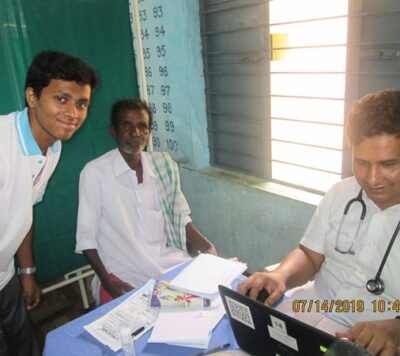
The idea was to makes these villages not just self-sufficient, but model villages which can then affect change in other communities in the district.
In the multiple visits during the academic year 2018/19, they assisted the village folk in the areas of Sports and Fitness, Education, Music, Cleanliness, Plumbing and Survey work. Considerable progress was made in all these areas.
In this manner, they fulfilled their promises to the elders of these villages.
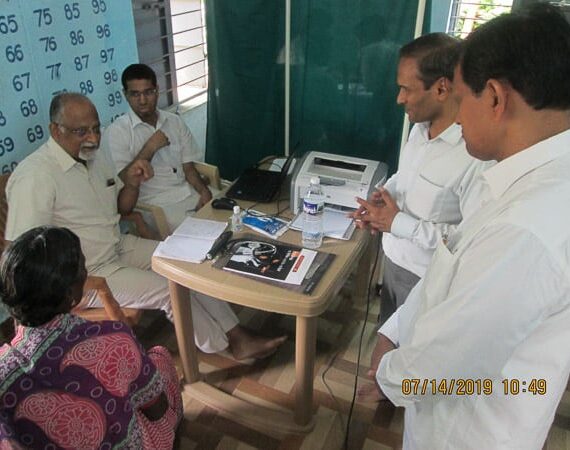
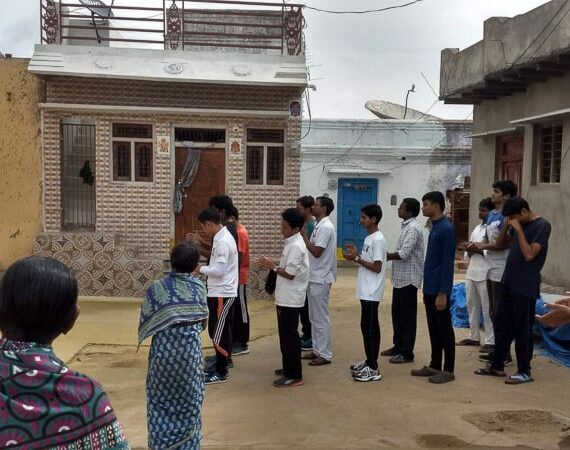
On 14 July 2019, the teams visited all the villages again to continue their work from the previous academic year.
At the village of Narsimpalli, students and teachers responded to the requests of village folk in providing minimum maintenance for the existing dilapidated government school. They began with essential plumbing work (taps, pipelines, etc.) and worked with the village mason and others to facilitated further work.
At Bonthalapalli, students of the Dept. of Economics took on the challenge of reducing unemployment of the village youth. The highlighted the need for better skills to get actively employed. They then interviewed the twenty unemployed youth of the villages and assessed their current educational qualifications, levels of skills, etc. They set a target of 15 August to go back with consolidated data and actively work with them to teach the required set of soft skills, thus enhancing their employability.
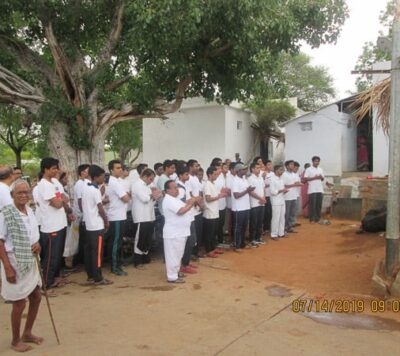
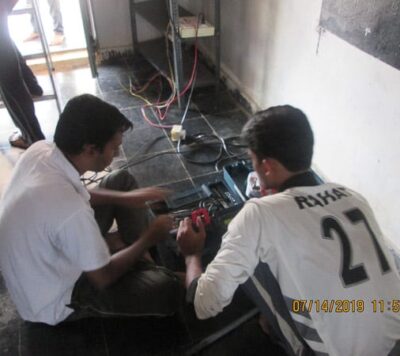
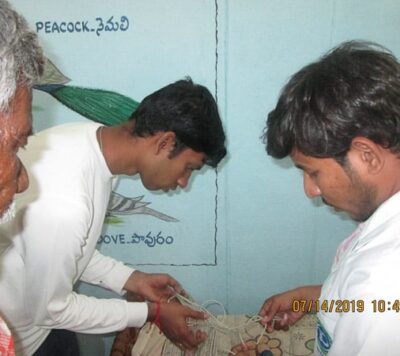
At Marlapalli, under the Education module, students of 4-6 Std. were trained in basic reading skills. Students of Std. VII were involved in a host of Mathematical activities. Other activities include making of Bank books, learning basic music skills and Yoga asanas.
Separately, medical data of 78 village elders was collected and students of the M.Tech. (Computer Science) programme employed their data mining skills and came up with a follow-up plan (including predictive measures) for the next action steps.
Love All, Serve All, as our Revered Founder Chancellor always taught us.
#SSSIHLService #SSSIHLIntegralEducation
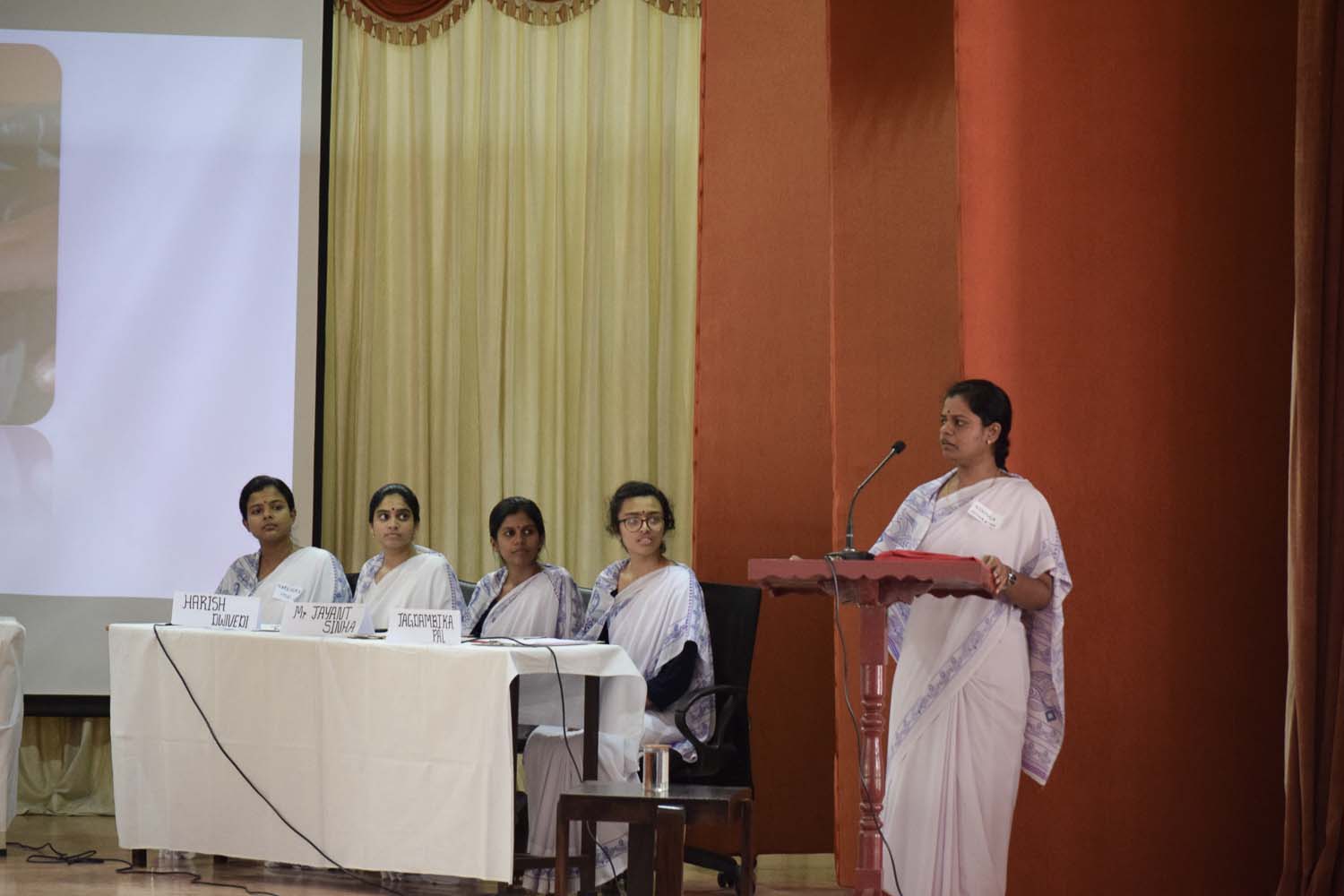
Honing the art of Analytical and Presentations Skills via the Union Budget.
On 13 July 2019, the teachers of the Dept. of Management & Commerce held an intensive 3-hour workshop on Analytical and Presentations Skills. They did this by dissecting the critical focus areas of the 2019/20 Union Budget (or the country’s Annual Financial Statement if you like).
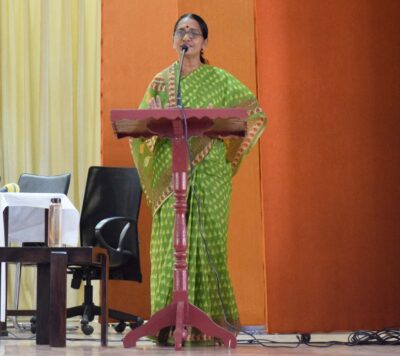
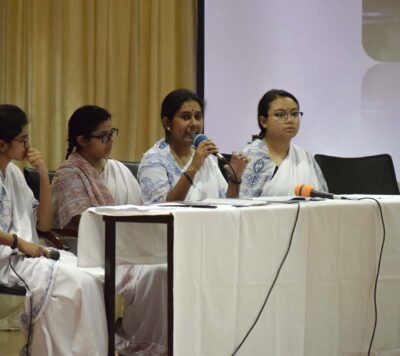
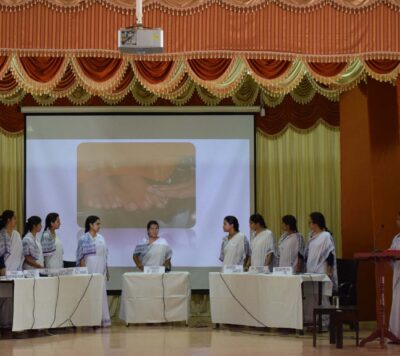
These included vital parameters like cess and import duties, the interchangeable use of Aadhaar and PAN card, the allocation of funds for various sectors from defence to agriculture, the dream of a $5 trillion Indian economy, Encouragement of start-ups by the quick sanction of loans and tax deduction, etc.
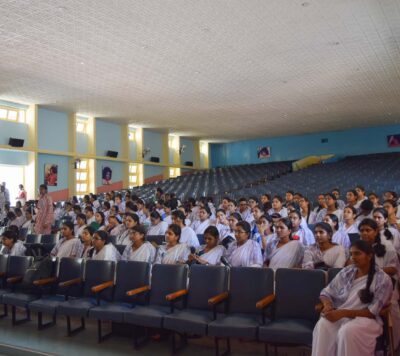
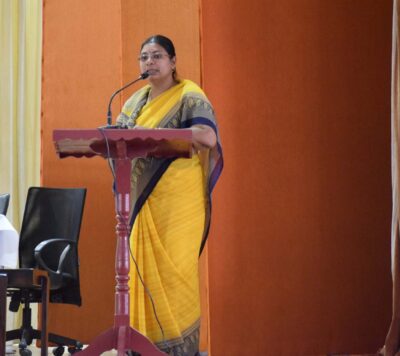
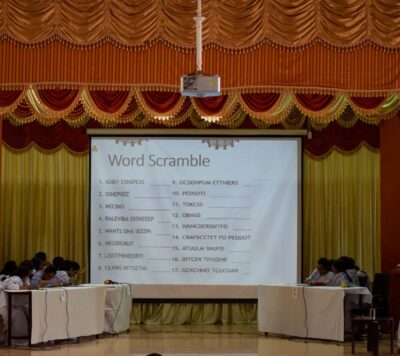
Students presented the key highlights and facts via role play. They were further discussed and analyzed in a panel discussion, which comprised of students from various departments. Students then participated (with enthusiastic zeal) in a quiz, adding to the liveliness of the workshop.
The budding economists of SSSIHL learnt the nuances of micro-level budgeting, personal finance and personal budget and how to analyze these concepts in a balanced manner and also present the facts in an impactful fashion.
#SSSIHLManagementCommerce #SSSIHL
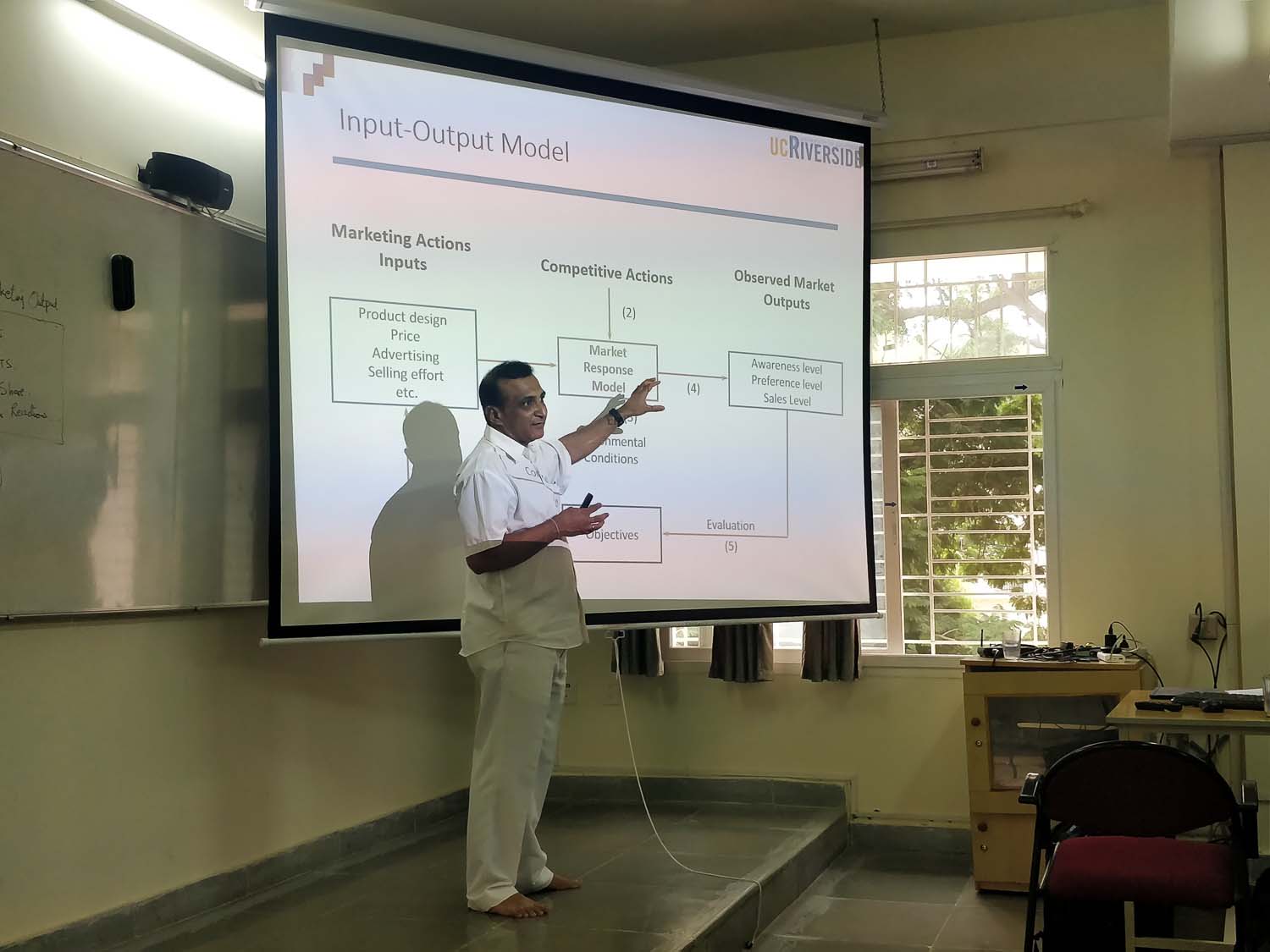
Imagine you are a marketing expert. I mean a real expert!
You are the Divisional Head of a manufacturing firm and have to make tough decisions based on the 4Ps – Product, Price, Place and Promotion – in a highly competitive marketplace and take responsibility of the outcome of these decisions!
On 29 June 2019, the II-year M.B.A. students of SSSIHL did just that, albeit through a world-class simulation game on Strategic Marketing Decision Making.
Marketplace Simulations was kind enough to provide this state-of-the-art simulation, on a free of cost basis to SSSIHL students for trial.
Dr. Ashish Sood, Associate Professor of Marketing, University of California Riverside, championed the simulation game. He used his vast industry and academic experience to provide the best hands-on experience to the students during the game.
The marketplace simulation helped to strengthen students’ understanding of the fundamental marketing concepts and taught them new data-driven skills. In this realistic international business setting, they ran the marketing division of a corporation for five quarters in compressed time (five rounds of decision-making).
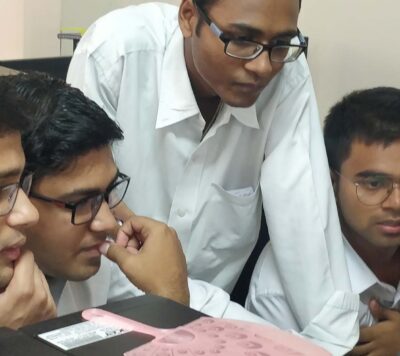
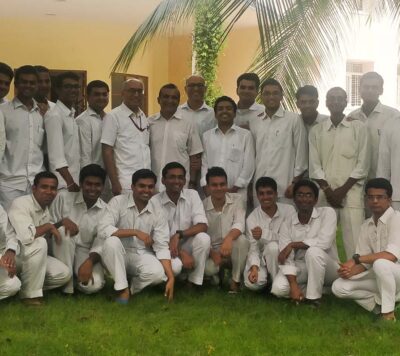
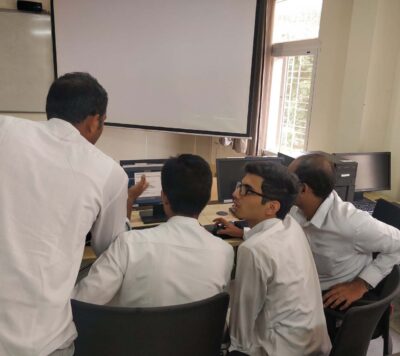
It put them in the deep end of the fast-paced marketplace, where the timeliness and quality of decision-making can make or break the business. Students realized that to succeed in such an environment; academic fundamentals must be strong – not just marketing, but also operations, finance, budgeting, et al.
During the game, they had the opportunity to analyze various situations, plan a marketing strategy around them, and chose the tactical options amidst all the conflicts, tradeoffs and potential outcomes to implement and execute their plans. They also faced uncertainty from the outside environment and their own decisions.
Talk about going from 0 to 100 (read: theory to practice) in less than 60 seconds!.
A Hike. Outdoor learning activities. Games. Indoor competitions and learning games. Skits. Role Plays.
These series of creative, fun and intellectual activities were organised by the students, doctoral research scholars and teachers of the Dept. of Management & Commerce to celebrate 33 years of the SSSIHL MBA programme on 21 August 2019.
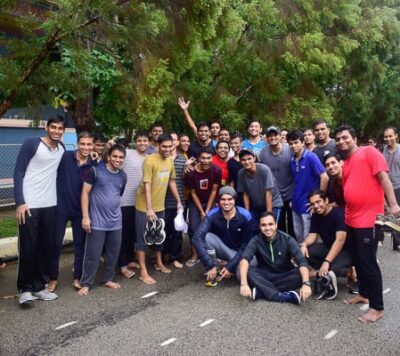
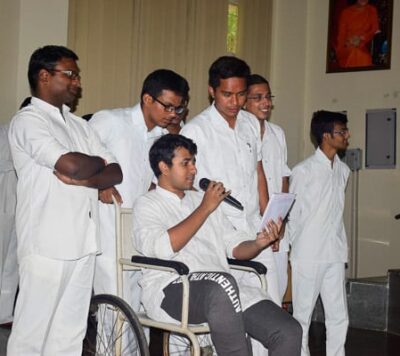
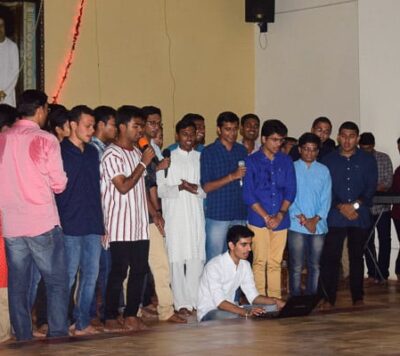
Teachers reminded students of the sacrifices all the teachers had made in the past three decades to bring up the MBA programmes and of Bhagawan Baba’s purpose of developing men and women of integrity and character. He spoke on the importance of leading by example and ethical practices rooted in the teachings of Bhagawan Sri Sathya Sai Baba.
Bonhomie. Camaraderie. Gratitude. This is how the day ended for everyone.
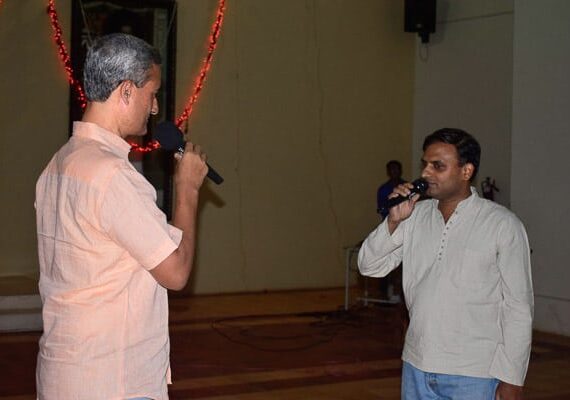
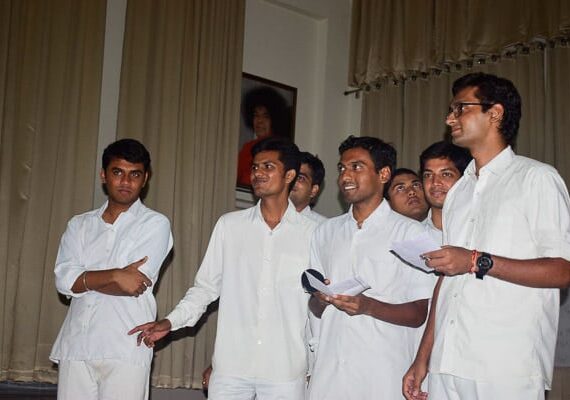
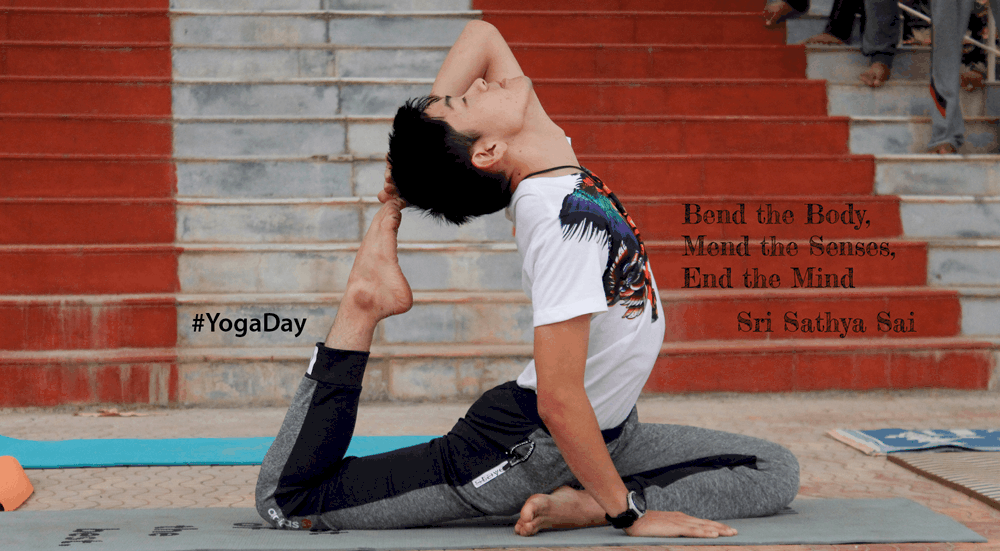
International Yoga Day celebrated @ SSSIHL
From Pranayama to Suryanamaskar to Dandasana, Bakasana, Mayurasan, Hata yogas, Kriyas and even an elocution on Yoga, students, teachers and mentors from all our campuses joined millions of people around the world to celebrate the ancient Indian tradition of Yoga on International Yoga Day on 21 June.
#YogaDay, #SSSIHLIntegralEducation
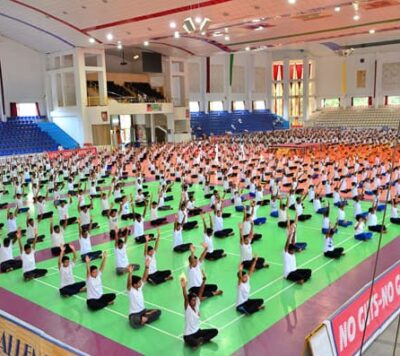
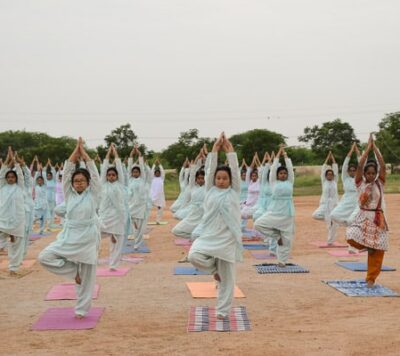
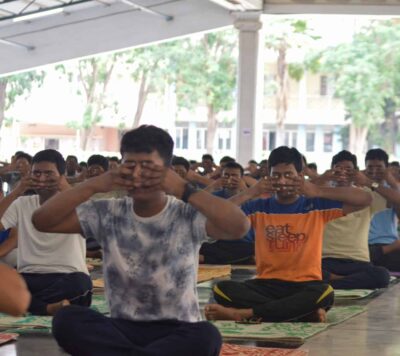
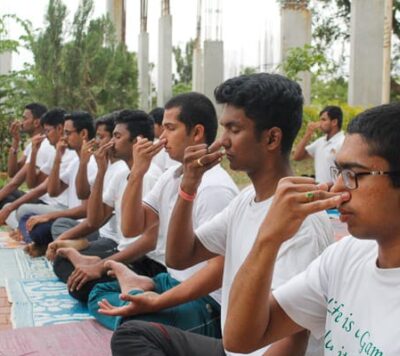
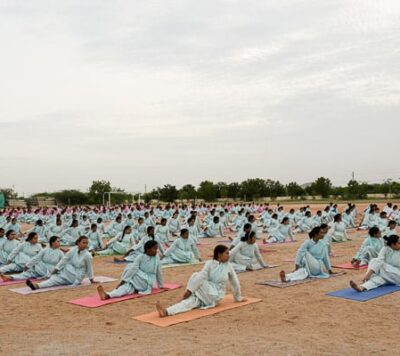
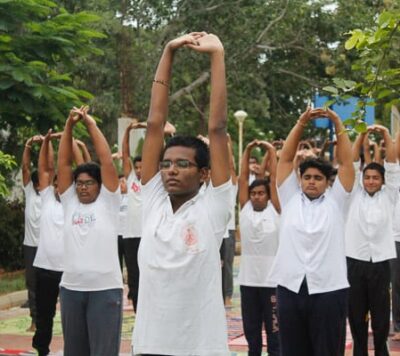
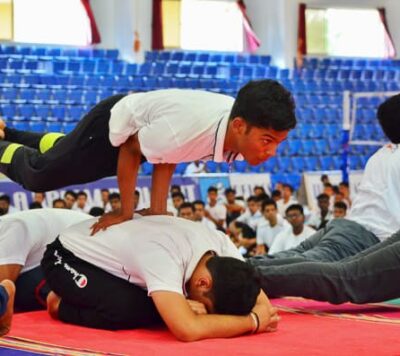
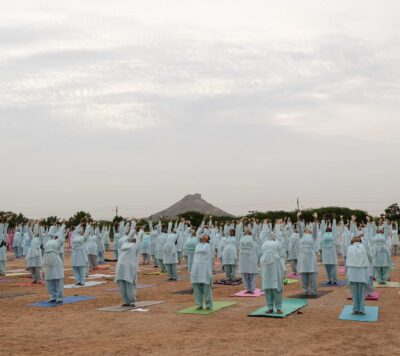
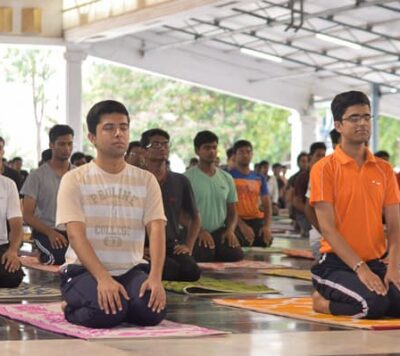
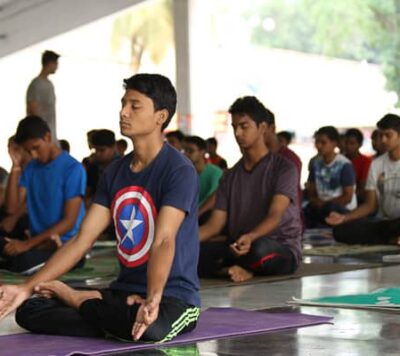
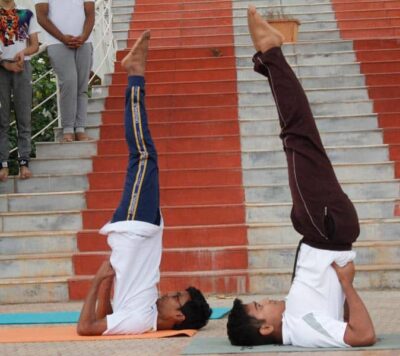
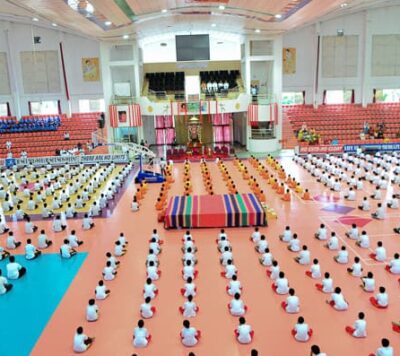
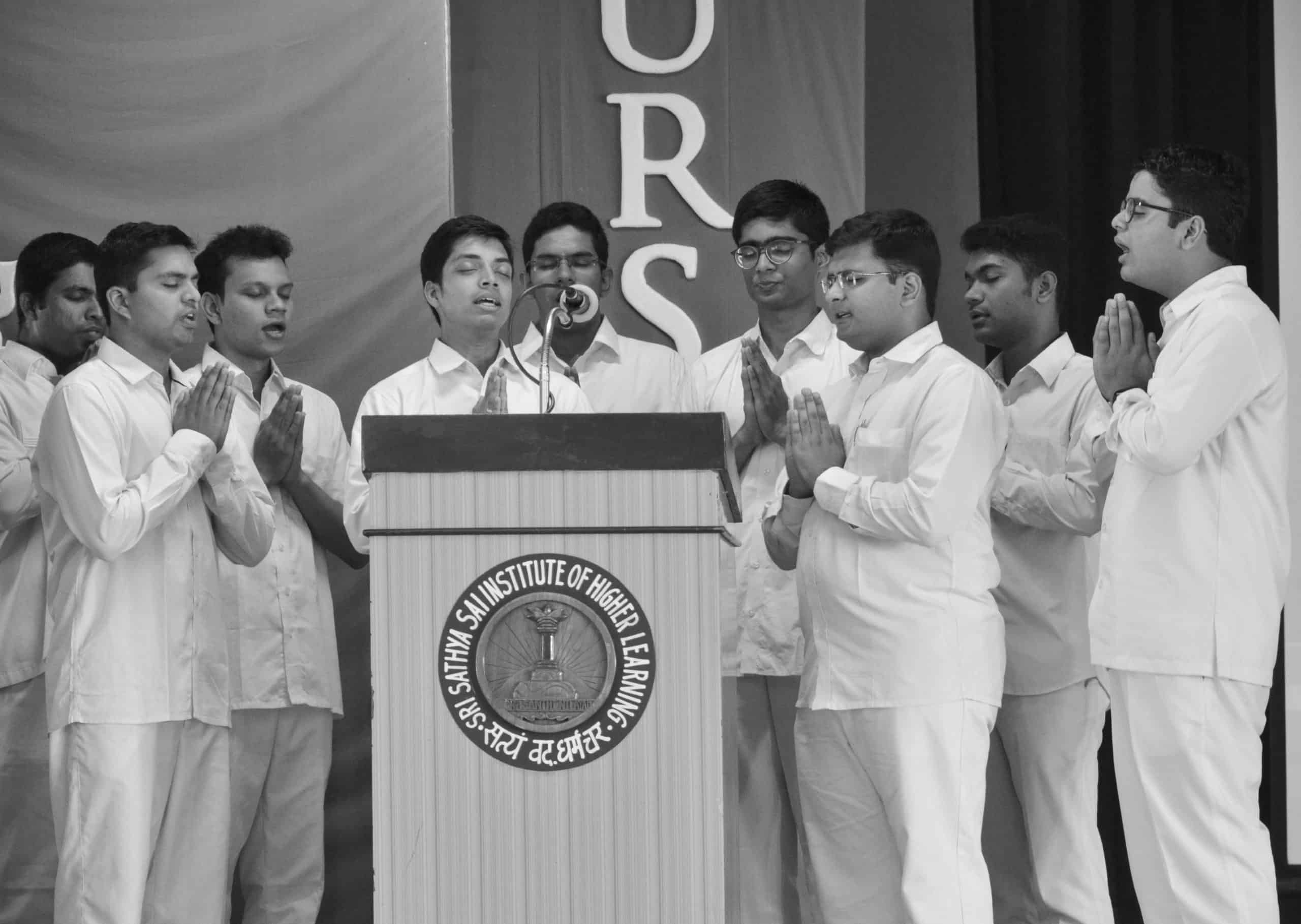
Man can make genuine progress only when the idea that education is for earning a living is given up. Only one who realises this truth is a truly educated person. Knowledge does not mean mere booklore. It is not the transference of the contents of books to the brain.
Education is intended for the transformation of the heart. Man today is proud about the little knowledge he has acquired about the physical world and boasts that he knows all about the universe. True knowledge is that which establishes harmony and synthesis between science on the one hand and spirituality and ethics on the other. Man, therefore, should at the outset determine the true value of education.
This will be a Gurukula – a place where teachers and taught will grow together in love and wisdom – and like the ancient system of education, it will develop in its students a broad outlook and promote virtues and morals, which serve to foster noble ideals in society.
This Institute will be a temple of learning where youth are shaped into self-reliant, contented and enterprising heroes of action and self-sacrifice, for the purpose of serving humanity.
Bhagawan Sri Sathya Sai Baba
Revered Founder Chancellor, SSSIHL
13-15 June 2019
The Summer Course in Indian Culture & Spirituality serves as an induction programme to all students and teachers of Sri Sathya Sai Institute of Higher Learning with an objective to expose students of the University to the rich cultural and spiritual heritage of Bharat. It orients students into Bhagawan Baba’s educational philosophy and gives them deep, first hand insights into how they can directly benefit from this unique institution.
During the academic year 2019/20, the event was held at each of the four campuses of SSSIHL – Prasanthi Nilayam, Anantapur, Brindavan and Muddenahalli – from 13 to 15 June 2019.
All students and teachers of the University participated, along with several invited guest speakers. On display was a smorgasbord of creative and engaging topics, discussions, talks, singing, chanting and quizzes – each purposefully curated to imbibe in students the key teachings on Indian culture and spirituality from the ancient scriptures and Sai literature.
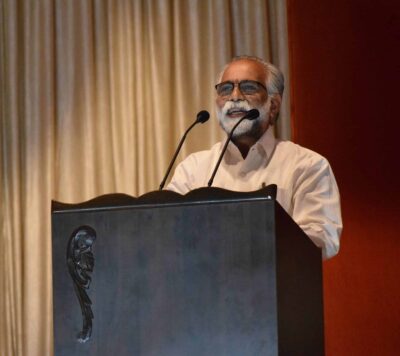
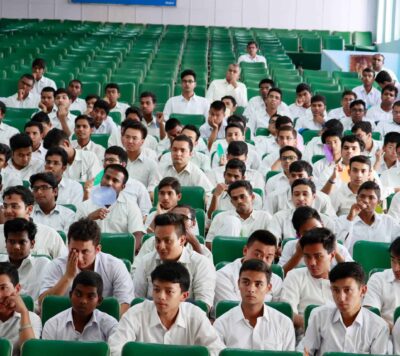
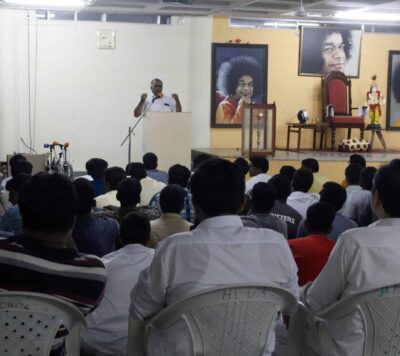
Some of these included:
Quiz on Great Epics of Indian Culture, Swami’s Guidelines for good living, Bhagawan on the significance of the Summer Course, Divine Directions and their practical implementation in our daily life, Lessons from the Bhagavatam, Panel Discussion on Indian Culture and Spirituality, Sri Rama and Sai Rama, Importance of Vedic Literature in Indian culture, Impact of Bhagawan and the Sri Sathya Sai System of Education, Spirituality in Daily Life, Sarva Karma Bhagavath Prityartham – Lessons from our scriptures, Self-Image and Positive Psychology, Head in the forest, hands in the society – Lessons from the Bhagavad Gita, Help Ever Hurt Never, Role of Discipline, Duty & Devotion in the development of Personality of a student, Workshop on devotional singing, Sadhana and Seva, Food Habits and Health, The profound Truths in Hindu Mythology, The science behind ancient Bharatiya traditions and practices, The inner connect with Bhagawan
